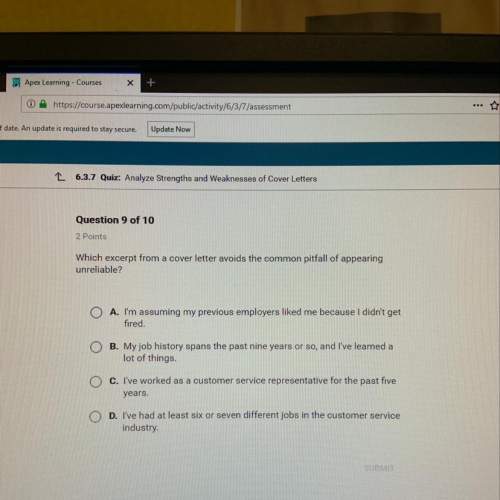
English, 09.10.2021 08:00 kimjp56io5
Gatsby’s house was still empty when I left — the grass on his lawn had grown as long as mine. One of the taxi drivers in the village never took a fare past the entrance gate without stopping for a minute and pointing inside; perhaps it was he who drove Daisy and Gatsby over to East Egg the night of the accident, and perhaps he had made a story about it all his own.
5 I didn’t want to hear it and I avoided him when I got off the train. I spent my Saturday nights in New York because those gleaming, dazzling parties of his were with me so vividly that I could still hear the music and the laughter, faint and incessant, from his garden, and the cars going up and down his drive. One night I did hear a material car there, and saw its lights stop at his front steps. But I didn’t investigate.
10 Probably it was some final guest who had been away at the ends of the earth and didn’t know that the party was over. On the last night, with my trunk packed and my car sold to the grocer, I went over and looked at that huge incoherent failure of a house once more. On the white steps an obscene word, scrawled by some boy with a piece of brick, stood out clearly in the moonlight and I erased it, drawing my shoe raspingly along the stone. Then I wandered down to the beach and sprawled out on the sand.
15 Most of the big shore places were closed now and there were hardly any lights except the shadowy, moving glow of a ferryboat across the Sound. And as the moon rose higher the inessential houses began to melt away until gradually I became aware of the old island here that flowered once for Dutch sailors’ eyes — a fresh, green breast of the new world. Its vanished trees, the trees that had made way for Gatsby’s house, had once pandered in whispers to the last and greatest of all human dreams; for a transitory 20 chanted moment man must have held his breath in the presence of this continent, compelled into an aesthetic contemplation he neither understood nor desired, face to face for the last time in history with something commensurate to his capacity for wonder.
And as I sat there brooding on the old, unknown world, I thought of Gatsby’s wonder when he first picked out the green light at the end of Daisy’s dock. He had come a long way to this blue lawn, and his dream 25 must have seemed so close that he could hardly fail to grasp it. He did not know that it was already behind him, somewhere back in that vast obscurity beyond the city, where the dark fields of the republic rolled on under the night.
Gatsby believed in the green light, the orgastic future that year by year recedes before us. It eluded us then, but that’s no matter — to-morrow we will run faster, stretch out our arms farther. . . . And one fine morning ——
30 So we beat on, boats against the current, borne back ceaselessly into the past.
WRITE a literary analysis discussing how the author’s use of metaphors, allusion, or symbolism reflect the choices people make.
Be sure to-
make a clear thesis statement, or claim
give reasons for your claim in logical order
support your claim with details and evidence from the text
choose your words carefully
edit your writing for grammar, mechanics, and spelling
(I need an Introduction, three body paragraphs, and a conclusion)

Answers: 3


Another question on English

English, 21.06.2019 20:30
Hurry i'll give 20 pts and a to whoever will comment first hurry no coying compares how both dickinson and shelley use form - lines, capitalization, and punctuation - to bring meaning to the poems "will there really be a 'morning'? ", "i dwell in possibility", and "ozymandias".
Answers: 1

English, 21.06.2019 22:00
Read this passage.my career in journalism has taught me the challenges of capturing sporting events, yet gregor powell's descriptions are flawless. powell is a gold-medal paralympic swimmer, but his memoir proves that his true strength is the power of his insights.what feature distinguishes this passage as a foreword?
Answers: 1

English, 22.06.2019 04:00
How are montag and faber opposites of each other? a) montag is a firefighter, therefore it is his job to burn books. faber used to be and english professor, and it was his job to teach students about books. b) montag is passionate and determined, and farber is wise and cautious c) montag is brave enough to steal and illegal book. faber was too afraid to speak up when books started to become illegal. d) all of the answer choices are correct
Answers: 1

English, 22.06.2019 07:00
What questions should readers ask about the exposition of a story?
Answers: 1
You know the right answer?
Gatsby’s house was still empty when I left — the grass on his lawn had grown as long as mine. One of...
Questions





Business, 12.07.2019 13:00

Biology, 12.07.2019 13:00




Mathematics, 12.07.2019 13:00

Social Studies, 12.07.2019 13:00

Social Studies, 12.07.2019 13:00

Chemistry, 12.07.2019 13:00

Chemistry, 12.07.2019 13:00


Mathematics, 12.07.2019 13:00


English, 12.07.2019 13:00





